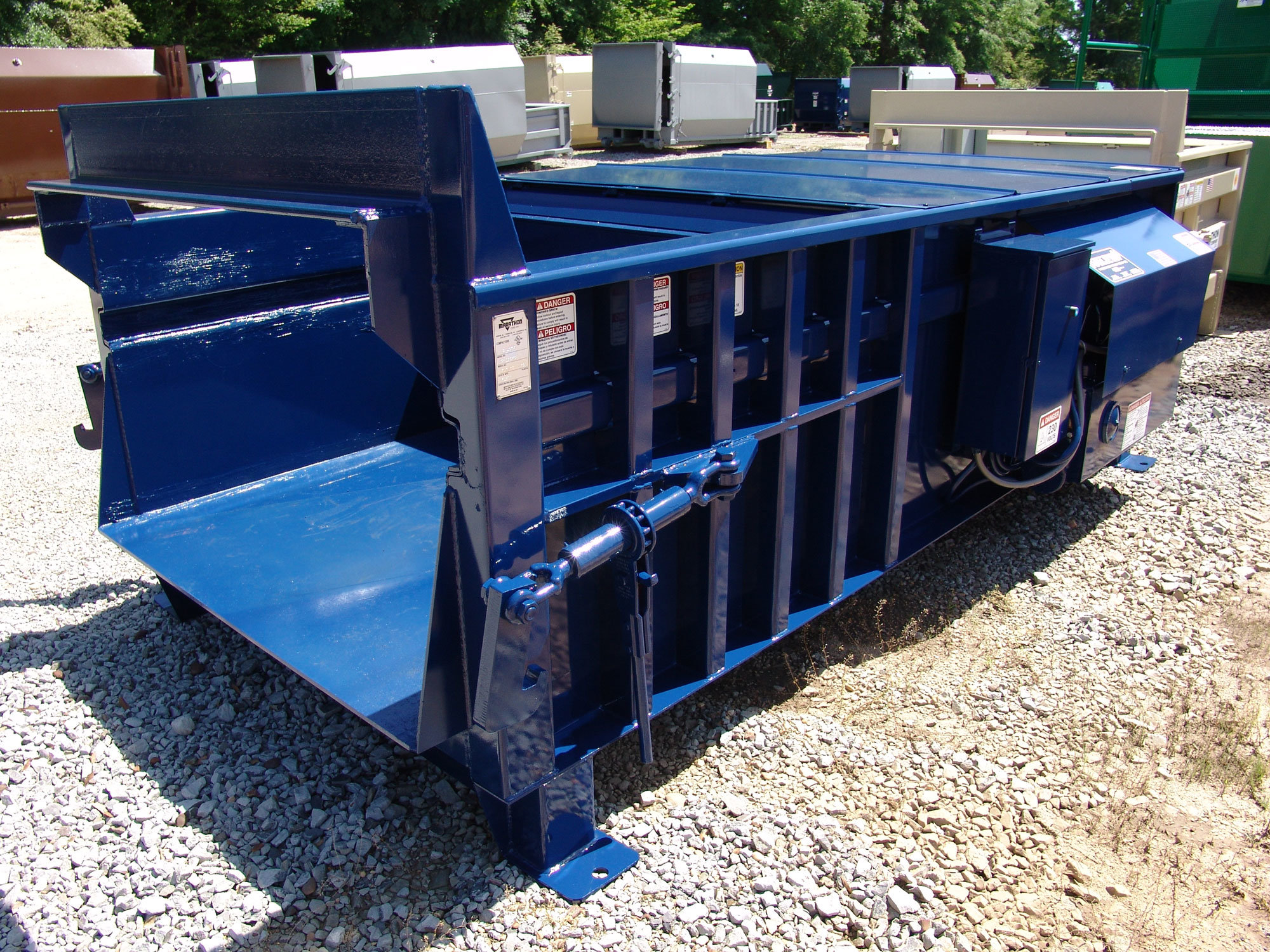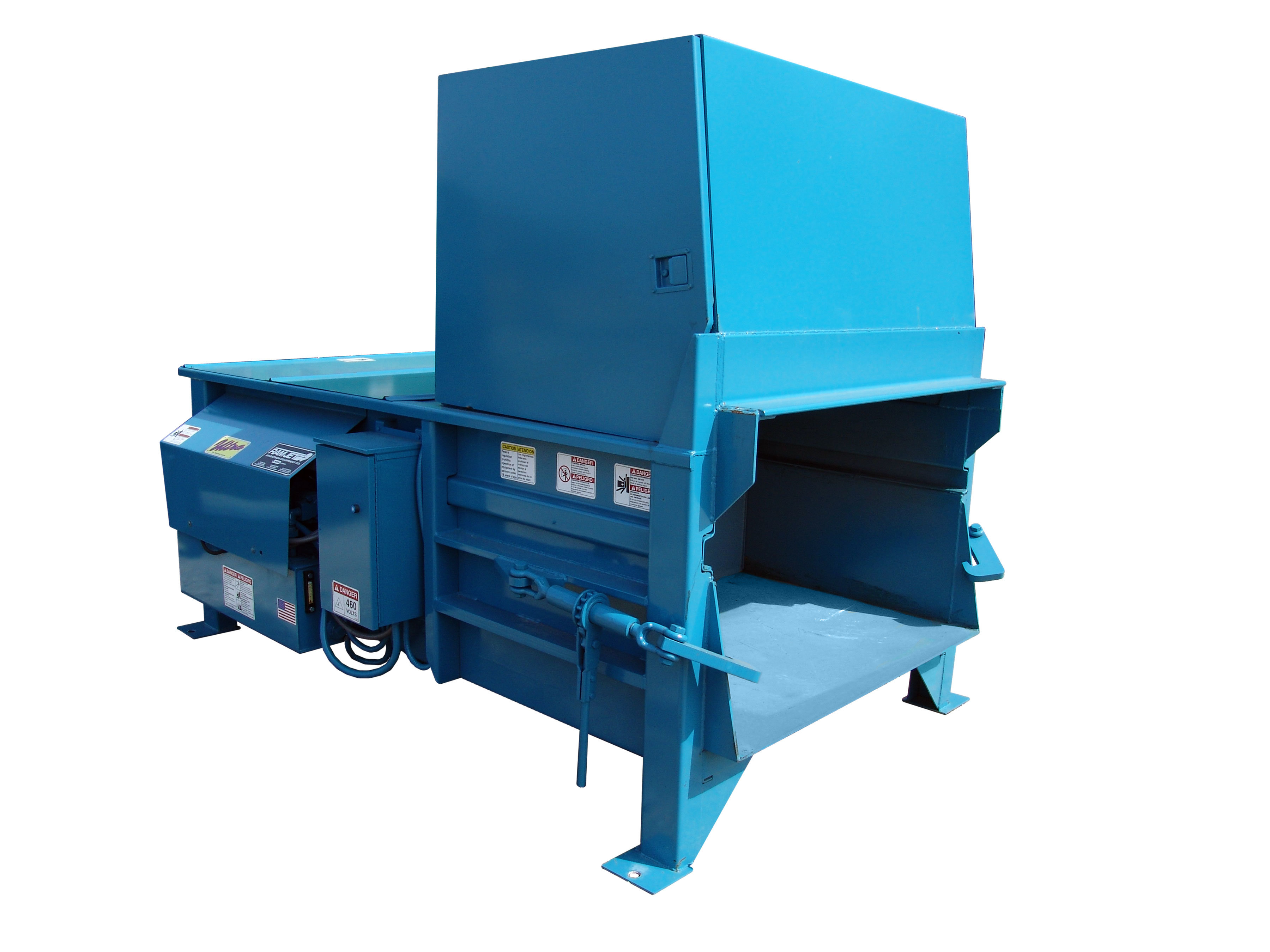How Industrial waste compaction equipment contributes eco-friendly initiatives
Wiki Article
Just How Waste Equipment Enhances Effectiveness in Garbage Compactor Operations
Waste Equipment plays a vital function in improving the effectiveness of garbage disposal operations. By utilizing advanced sensing units and automation, these systems improve compaction cycles and keep track of tons capacities successfully. This combination not only saves power however likewise lowers pick-up regularity and connected expenses. As companies increasingly take on these innovations, the implications for functional sustainability and monitoring techniques end up being more clear. What various other advantages might emerge from these improvements in waste Equipment?The Duty of Advanced Sensors in Compaction Performance
Advanced sensing units play an essential duty in improving the performance of garbage disposal. These sophisticated tools keep track of various criteria, including tons capacity, moisture degrees, and compaction cycles, permitting for real-time changes. By properly assessing the amount of waste, sensors allow compactors to optimize their operation, guaranteeing that power consumption is reduced while optimizing the volume of waste refined.Progressed sensing units add to predictive upkeep by recognizing prospective issues before they lead to Equipment failure. This positive method not only minimizes downtime yet likewise expands the lifespan of the compactor. Additionally, information gathered from these sensing units can be assessed to enhance functional strategies, bring about boosted waste monitoring methods. Overall, the combination of innovative sensors in garbage compactors substantially enhances their efficiency and operational performance, equating right into cost savings and a more lasting approach to garbage disposal.
Toughness and Design: Materials That Matter
The durability and style of garbage compactor pivot considerably on the materials utilized in their building. Top quality steel is often the main choice, supplying strength and resistance to damage. This robust product stands up to the enormous pressure exerted during compaction, guaranteeing longevity and integrity. In addition, elements such as hydraulic systems are usually crafted from corrosion-resistant alloys to avoid degradation gradually, boosting functional efficiency.Design likewise plays an essential role in capability; calculated reinforcements and ergonomic forms can significantly impact performance. Producers commonly focus on modular styles, permitting less complicated repair and maintenance. Furthermore, developments in coating modern technologies, such as powder layer, enhance resistance to environmental elements, including wetness and chemicals. Ultimately, the mindful option of materials not just improves the architectural integrity of garbage compactor however also adds to their overall effectiveness and effectiveness in waste monitoring operations.
Automation and Smart Innovation in Waste Equipment

In addition, automated compactors can maximize compaction cycles based upon the quantity of waste, making the most of room and improving operational performance. Assimilation with mobile applications allows customers to keep track of and control compactors from remote places, boosting benefit and responsiveness. By adopting these modern technologies, waste management firms can not only boost their functional workflows yet likewise add to more lasting practices by reducing waste and maximizing source usage. Overall, automation and wise innovation stand for a substantial jump onward in the efficiency of garbage compactor procedures.
Data Analytics for Optimizing Waste Administration
Utilizing data analytics offers waste monitoring firms a powerful tool for enhancing procedures and enhancing performance. By collecting and evaluating data from numerous sources, such as compactor efficiency metrics and waste generation patterns, business can gain important understandings. These insights allow them to make informed choices concerning collection timetables, compactor usage, and upkeep demands.Furthermore, anticipating analytics can anticipate waste generation trends, enabling business to allocate sources more efficiently and stay clear of prospective overflows or underutilizations of Equipment. Real-time tracking with data analytics likewise improves the capability to react promptly to functional challenges, reducing downtime and improving service dependability.
In addition, integrating data analytics with existing waste monitoring systems cultivates a society of Visit Website constant renovation. By determining inefficiencies and tracking efficiency over time, firms can improve their procedures and adopt finest techniques, inevitably resulting in an extra lasting and effective waste management method.
Expense Cost Savings Via Boosted Functional Effectiveness
By enhancing operations and lessening waste, companies can achieve considerable expense financial savings in their waste management processes. Boosted functional performance in garbage compactor minimizes the regularity of pick-ups, bring about lower transport expenses. Advanced waste Equipment enables for optimum compaction, making best use of container capability and lessening the requirement for extra bins.This boosted efficiency not only lowers waste disposal costs but additionally expands the life-span of Equipment, reducing upkeep costs. Automated tracking systems give real-time data, enabling aggressive adjustments in waste handling, which can in addition enhance efficiency and decrease unplanned expenses.
Furthermore, durable training programs for team on Equipment usage can bring about improved operational techniques, better driving down expenses. Ultimately, the assimilation of efficient waste Equipment fosters a cost-effective waste monitoring approach that profits business financially while ensuring smoother procedures.
Ecological Effect: A Sustainable Method to Waste Management

Furthermore, applying recycling efforts alongside compaction procedures permits companies to draw away products from landfills, advertising round economic situation concepts. Companies that take on eco-friendly practices not just enhance their company obligation yet additionally attract progressively eco-conscious customers. By prioritizing sustainability in waste management, organizations can accomplish a double benefit: boosting functional effectiveness while proactively adding to environmental conservation. This well balanced approach settings organizations as leaders in sustainable techniques, fostering a healthier earth for future generations.
Regularly Asked Concerns
Exactly How Commonly Should Waste Equipment Be Preserved for Ideal Efficiency?
The regularity of maintenance for waste Equipment usually relies on use and supplier suggestions - Industrial waste compaction equipment. Usually, examinations must take place quarterly, with detailed maintenance each year to ensure peak performance and avoid potential malfunctions or inadequaciesWhat Sorts Of Waste Can Be Processed in Garbage Compactors?
Garbage compactor can refine website here various kinds of waste, consisting of cardboard, paper, plastics, and non-hazardous food waste. Nonetheless, users should avoid condensing harmful products, steels, and fluids to guarantee risk-free and efficient operation.Are There Safety And Security Functions in Modern Trash Compactors?
Modern garbage disposal often include security attributes such as automated shut-off devices, emergency situation stop switches, and sensing unit systems (Industrial waste compaction equipment). These improvements are designed to secure users from potential hazards throughout operation, advertising a much safer working environmentHow Does Waste Equipment Impact Labor Demands?
The impact of waste Equipment on labor needs is significant; it frequently minimizes the requirement for hand-operated labor, boosting and simplifying processes efficiency. Fewer employees are required, permitting companies to allocate sources more successfully.What Is the Typical Life Expectancy of a Trash Compactor?
The typical life-span of a garbage compactor usually ranges in between 10 to 15 years, depending upon usage, maintenance, and environmental elements. see it here Normal servicing can extend this life expectancy, making certain optimal performance and integrity throughout its operational years.By embracing these innovations, waste monitoring firms can not only boost their operational workflows but likewise add to more sustainable methods by minimizing waste and optimizing source usage. By reducing and streamlining procedures waste, business can accomplish significant cost savings in their waste management procedures. Lasting waste administration methods, specifically in trash compactor operations, add considerably to decreasing land fill waste and lowering carbon impacts. Modern waste Equipment is developed to optimize compaction, thereby lowering the volume of waste needing disposal. Trash compactors can process numerous kinds of waste, consisting of cardboard, paper, plastics, and non-hazardous food waste.
Report this wiki page